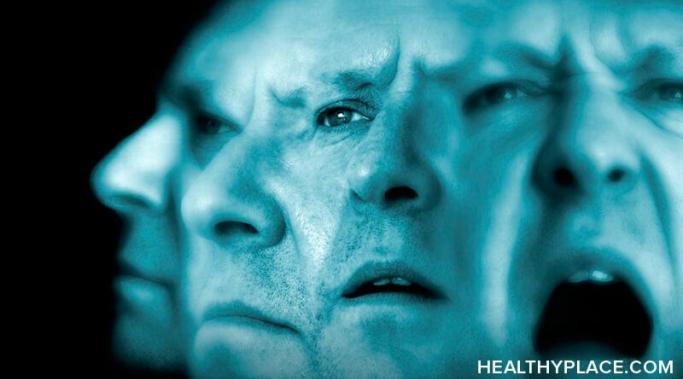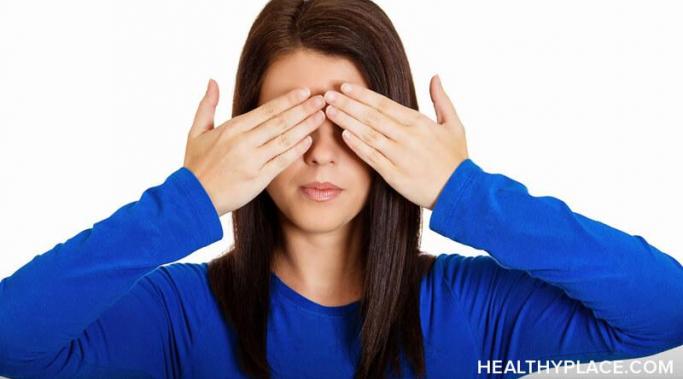Blogs
Socializing when you're depressed can be uncomfortable because isolating yourself and depression often go hand-in-hand. If you have been staying in and keeping to yourself, this can sometimes worsen the symptoms of depression. It is important to make an effort to socialize regularly, even if it's a small interaction. Why is socializing when you feel depressed important? Talking to other people can make you feel less alone, give you something to focus on other than your worries, and can positively affect your mood.
Although we share a depression diagnosis, each of us is still an individual with unique interests; therefore, when we're feeling depressed, it's important to find hobbies and activities that work for our specific personality types. So, what are some suggested activities, and how do we discover which ones might work for us? Also, how can participating in these hobbies and activities help us when we're feeling depressed?
My psychotic break happened years ago, but I still feel that what I believed was real, even though I know it wasn't. Likewise, my schizoaffective disorder doesn't feel like an illness. It feels like something that happened to me. My initial psychotic break doesn't feel like the onset of an illness. It feels like it was an event. Maybe it's because the things my mind told me were happening--that famous people were stalking me--seemed so very real.
You can learn self-awareness skills to help you recover from addiction. Being aware of your own triggers is an important part of successful addiction recovery. In fact, self-awareness overall is essential for recovery from drug or alcohol addiction. You may be wondering what does it actually mean to be self-aware? What are self-awareness skills? Generally speaking, those who have a good grasp on self-awareness have a realistic perception of who they really are, including aspects like their personal habits and behaviors, strengths and weaknesses, and their mental and emotional tendencies. This awareness will help you deal with the triggers to use, drink, or return to old behaviors that will likely lead you there. Self-awareness skills can be learned, and you'll find some of them in this post.
Treating the pain of anxiety and headaches is increasingly possible now that medical and mental health professionals are beginning to understand the very real connection between anxiety and headaches. In the past, doctors treated anxiety and headaches as two separate conditions. People who lived with both of these uncomfortable illnesses often failed to get true relief. Now that people are beginning to uncover the connection between the two, treating the pain of anxiety and headaches is possible. You can improve not just anxiety and headaches but the overall quality of your life.
Knowing how to balance being independent and asking for help is hard enough, and when you have dissociative identity disorder (DID), it can be even harder. People with DID and other specified dissociative disorder (OSDD) have often experienced prolonged trauma in childhood, which in turn disrupts their sense of self and sense of their own abilities. This disruption can last through adulthood. But does that mean it's too late to learn how to balance dependence and independence?
Weight training builds self-esteem like almost any exercise. When you do not enjoy cardio exercise or any particular sport, you may enjoy hitting the gym and lifting some weights. This might be the case for a number of reasons: you find the gym environment motivating, you get in the zone doing repetitions, you like the feeling of building strength, or you enjoy mixing things up. Whatever the reason for your preference for weight training (also known as resistance training or strength training), the outcome is that weight training builds self-esteem. Here’s how.
The root causes of self-harm are as varied as the people who are affected by it. Though self-harm is a problem in and of itself, it is often a response to an underlying stressor of some kind. The reason behind the stress is the cause of self-harm.
Has the anxiety surrounding "fear foods" hindered your progress in eating disorder recovery? Do you feel motivated to embrace healing, but you just cannot seem to overcome the inner panic that clenches your stomach when faced with a plate of spaghetti, box of donuts, or slice of pizza? Are there categories of food you have labeled "safe" and other categories you're still terrified of biting into? If you can relate to any of these scenarios, then you've allowed fear foods to hinder your eating disorder recovery—and the quickest approach to neutralizing that fear is challenging it head-on.
Living with a mental illness leaves me with some painful and embarrassing memories I would rather not revisit. At the same time, they are a part of me I can’t escape. I want my daughter to know about all the twists and turns in my life that brought to where I am today as her mother, so I'll have to tell her some of my embarrassing memories in the future.









